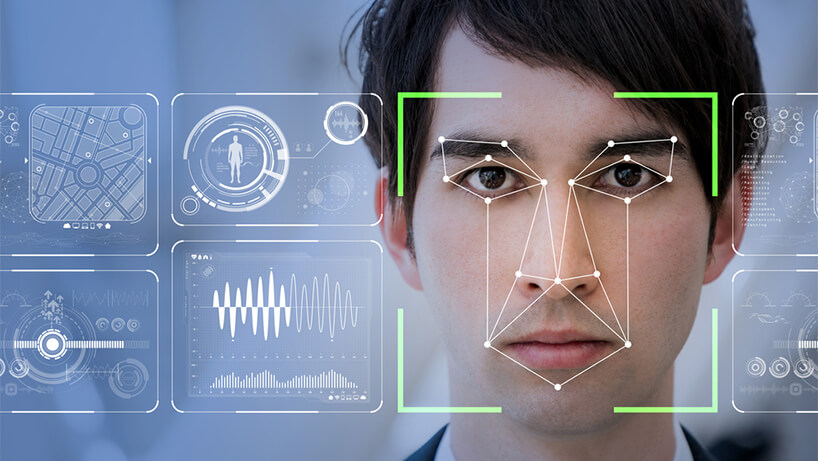
Facial Recognition at Hotels, Airports, and Conferences Raises Privacy Concerns

The revolutionary technology will transform the experience for travelers and attendees. To harness its power, though, businesses must take a proactive approach to addressing privacy issues.
When guests arrive at the Hangzhou Marriott Hotel Qianjiang or the Sanya Marriott Hotel Dadonghai Bay, they don’t need to show their identification cards to retrieve room keys. Instead, they can simply scan their faces and enter their information on a self-serve machine. The new facial-recognition program is part of Marriott’s partnership with Chinese e-commerce giant Alibaba, and the hotelier has big plans to expand the service to all of its properties around the world.
Scanning a face into a database requires significantly less time than waiting in line to talk to a real human being. According to Marriott, the traditional hotel check-in process takes at least three minutes. With facial recognition, that experience shrinks to less than one minute. And according to Henry Lee, chief operations officer and managing director of Marriott International Greater China, less time spent in line is good news for everyone. “With technology, our hotel associates can work more efficiently to do what they do best,” Lee said in a statement, “delivering personalized service to our guests.”
There is no word on an official date for Marriott’s global integration of facial recognition, but travelers are already growing accustomed to scanning their faces throughout their journeys. Passengers departing on some international flights from some of the busiest airports in the U.S. — Boston, Atlanta, Chicago, Las Vegas, Miami, New York, Houston, and Washington, D.C. — have scanned their faces to verify their identities. Those scanners are appearing later in the airport experience, too. Delta has been testing facial recognition in the boarding process. And plenty of those passengers who own the iPhone X are already accustomed to using their faces to unlock their smartphones.
Facial Recognition Comes to Conferences, Too
Facial-recognition is making its way to the registration lines of conferences as well. At The Computing Conference in Hangzhou, China in October 2017, a one- to two-second scan replaced the typical wait-in-line-and-present-ID process. China makes for a fairly easy test market for facial recognition — the country’s government plans to have approximately 570 million surveillance cameras by 2020. But the futuristic approach to collecting credentials is appearing at events elsewhere. In 2017, the organizers of the International Corporate Events Awards in London used facial recognition to accelerate the check-in process. In April, at the Keller Williams Spring Masterminds event at the Gaylord National Resort & Conference Center in National Harbor, Maryland, nearly 50 percent of the 1,360 attendees provided pictures for facial recognition when they registered online.
As organizers look for opportunities to shorten the check-in process, where do privacy concerns come into play? In a business environment where data breaches happen every day, will attendees feel comfortable handing over their pictures in addition to a mountain of other sensitive data?

Al Wynant
In the short-term, Al Wynant, co-founder and CEO of Eventinterface at EventTechHub — a company that offers facial-recognition services — acknowledges that there will be concerns. “As with any new technology, organizers and attendees will have questions about its use, security, and benefits,” Wynant told PCMA. “When online registration first popped up, many attendees seemed concerned about sharing personal information and payment details online. Although online security remains a hot topic, it is rare to hear of an attendee concerned about signing up and paying online.”
Wynant believes that as airports embrace biometrics and smartphone companies replace passwords with face scans, the general public will grow more comfortable with the technology. However, he stressed the importance of preparing participants for the technology. “It is key for the event organizers to share with their attendees that facial recognition is being used for event check-in and other possible functions,” Wynant said.
Providing proactive answers for participants relies on asking vendors the right questions. “In general, most registration platforms — not the organizer — will work with a third-party vendor to provide the facial-recognition technology to their platform, not having actual access to or control over the data collected or stored,” Wynant said. “It is vitally important that an organizer has a good understanding of how the data is being used when a third-party provider is involved.”
For example, at Eventinterface, Wynant said the policy is to purge facial-recognition data from the system within 72 hours of an event’s conclusion, and the company’s process is designed to protect privacy.
If you’re looking to experiment with facial recognition at your next event, Wynant offered seven must-share-with-attendees pieces of information.
- An up-front alert. Let everyone know that you will be using it to prepare attendees before they arrive.
- The reasons why. Make sure your audience understands the potential benefits such as a faster check-in process, enhanced security, and receiving the correct continuing education credits.
- What you’re doing with the photos. How will they be used? How will they be stored?
- Your sharing policy. If any vendors, sponsors, or third-party apps will have access to the photos, attendees need to know before they add their smiling faces to your system.
- The ability to use traditional check-in. Wynant noted that organizers cannot make facial-recognition check-in mandatory due to some states’ biometric laws and the potential challenges with GDPR.
- The post-event photo policy. Will you store any images? When will they be deleted?
- You welcome questions. Facial recognition is new. Some attendees will be comfortable with the technology, and others will have concerns. Make sure it’s easy for everyone to ask questions and that your communications department is ready to answer them.

-(1).jpg?sfvrsn=e3d94e55_1)
Leave a commentOrder by
Newest on top Oldest on top